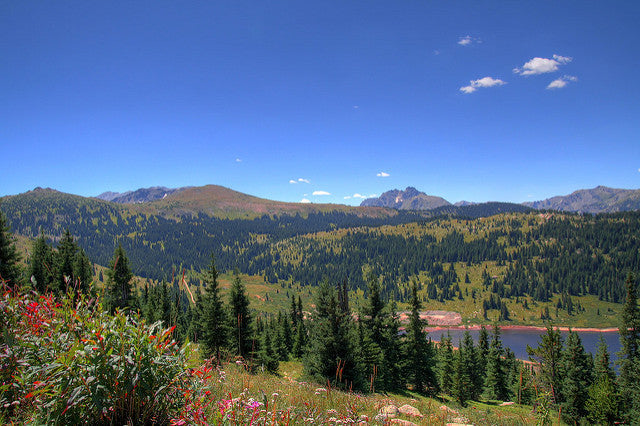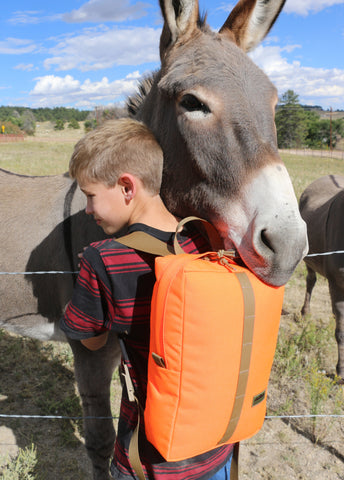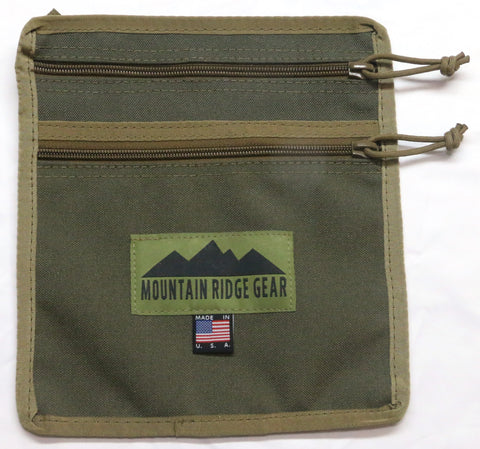One of the most common questions I get from novices is ‘how should I prepare for my first hunt in the backcountry?’ Hunting for elk and other big game in what can be a dangerous and unwelcoming environment is no small task, but I think I can help make it a little easier for you by sharing some of my backcountry hunting essentials. These are a handful of tips based on my experience as a backcountry hunter that could be valuable to novices and seasoned adventurers alike.
Before you head out on your next excursion to remote areas, take my advice to ensure you bring the right gear, pack it effectively, and keep yourself well-fed and healthy. If you can do those things, you’re sure to have a good time and come home safe.
Essential Backcountry Hunting Gear
Choosing the right gear is an essential part of any successful trip into the backcountry. Boots are a good place to start. There a lot of high quality boots on the market, the problem is that they can be very expensive. It’s not uncommon to see a $400 price tag, but you should be able to find a solid option for around $200. Look for a lightweight pair that’s easy on the insulation. That may sound foolish, but with the amount of walking and side hilling you’ll be doing light and flexible is the way to go.
I've seen some bloggers recommend the Danner Pronghorn, but personally I’m not a fan. They blister a lot of folks, including me. I used to think blisters were normal. They aren't. Unless you're a sadist, you should be looking for good fitting boots that never cause blisters. I prefer the Salomon 4d GTX.
Next up are your backcountry hunting bags. Mountain Ridge Gear offers a variety of bags, packs, and panniers that are perfectly suited to a trip deep into the backcountry. In fact, every one of these products was designed and crafted by me based on my own hunting treks into the wilderness of Colorado. They’re all battle tested and approved.
Check out our hunting panniers, mountain hunting backpacks, and pommel bags to find the gear storage solution that suits your needs. You’ll be ensuring that your packs can stand up to the challenges of backcountry hunting and supporting American made products at the same time.
What about clothing? There are two important things to understand: (1) you’ll need to dress in layers to account for a wide variety of conditions and temperatures. Have clothing that is appropriate for the heat and activity of mid-day as well as the cold nights and early mornings. (2) In the backcountry it's important to wear as much synthetic fabric as possible. Avoid cotton because of its ability to hold moisture. There's an old saying: "cotton kills."
For advice on selecting an elk hunting rifle, check out Jim Zumbo’s blog detailing how to find the perfect firearm for that purpose. For bow and arrow setups, Field & Stream’s 2016 guide to the top compound bows is a great resource.
Packing for a Backcountry Hunting Trip
The two main factors you need to keep in mind when packing gear are weight distribution and accessibility. You might need quick access to rain gear or first aid, but you also have to make retrieving your miscellaneous gadgets and tools as convenient as possible -- all without overloading a horse or pack animal, if you have one.
I’ve already shared some tips on pannier load balancing and horse packing tips. My best packing advice is to start by identifying the items you’ll need the most. If you need to dig down to the bottom of your bag every time you look for something, you didn’t pack right. First figure out which items will be most used and then take load balancing into account.
Backcountry Hunting Meals
Hunting at elevation of 7,000 to 9,000 feet is going to take a toll on you. You’ll need to supply your body with plenty of energy if you want to keep up. That means eating right.
There are some general rules to follow for each meal in the day to help you choose the right food and improve your experience in the backcountry:
- Backcountry food should be packed with calories, lightweight, and quick to prepare (‘just add water’ is the best if you're backpacking and can't carry much weight)
- The ideal breakfast should be a mix of quick-cook foods and no-cook foods (granola, cups of fruit, oatmeal packets)
- Lunch should be heavier, provide more energy, and consist of no-cook foods (jerky, dried fruit, apples, tuna pouches, trail mix)
- You have time to cook dinner, but it’s wise to stick to dehydrated food that weighs less (cup noodles / ramen)
One of the biggest advantages of bringing a pack animal along with you is that you don’t have to worry as much about lightweight food. Your mule or horse can carry a heavier load and help you bring along some more appetizing food. Eating a lot of Dehydrated meals can get old in a couple of days!
Fitness
Being in the wilderness requires excellent fitness. Simply put, if you’re not in shape you’re not ready for backcountry hunting.
The best way to avoid an emergency situation is not to put yourself in one. From my experience in the military, people who are not physically fit can put themselves and others at risk.
Try a Dry Run
A dry run can be the best way to prepare yourself for a backcountry hunting trip. Pack all your gear and take a short overnight or weekend trip to a less challenging location. If you can pull off a dry run before the backcountry season starts, you’ll be much better prepared for what’s in store. It’s easier to recover and learn from a mistake made in a dry run than a mistake out in the backcountry.
There’s no way to be 100 percent prepared for everything that can happen in the backcountry, but if you follow the advice above you’ll give yourself a good chance of staying safe and having a good time. Maybe you’ll even bag an elk!
Do you have preparation advice from your own experiences in the backcountry? Have questions about specific facets of preparing for backcountry hunting?
Leave a comment and let us know!




Matt
When hunting in the backcountry and leaving camp each day to hunt, always be prepared for a potential stay out overnight, or an extra day away from camp. carrying an extra day of food, and ALWAYS have a puffy jacket in your pack. I like to have a lightweight tarp as well. With my jacket, tarp, pack and a fire I can stay decently comfortable in the event I get stuck out overnight.
amberwright
Great job! I am glad to visit your blog ! from this i can get some useful tips for Choosing the right gear Boots are a good place to start. read more: https://thereviewio.com/best-hunting-rain-gear/